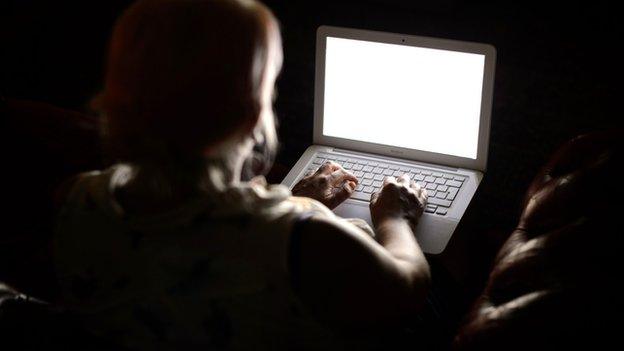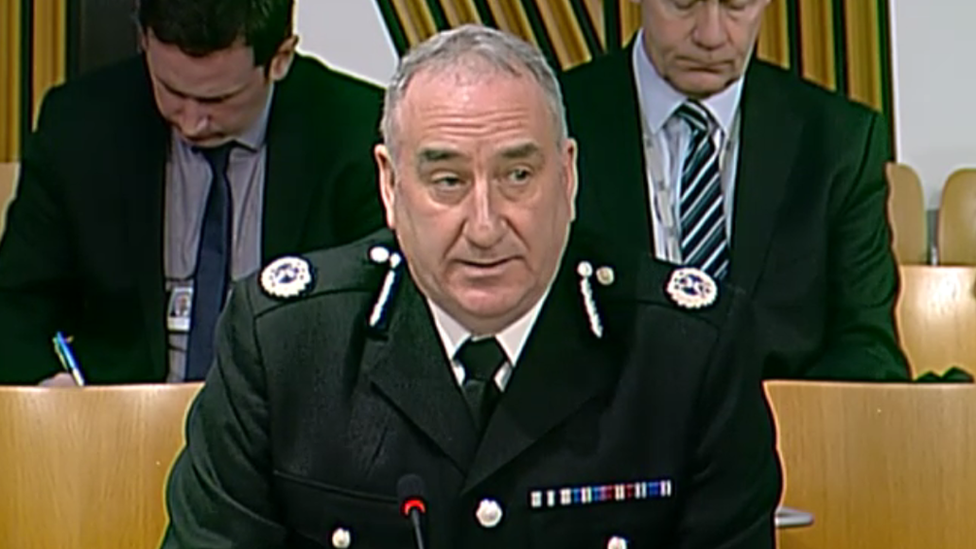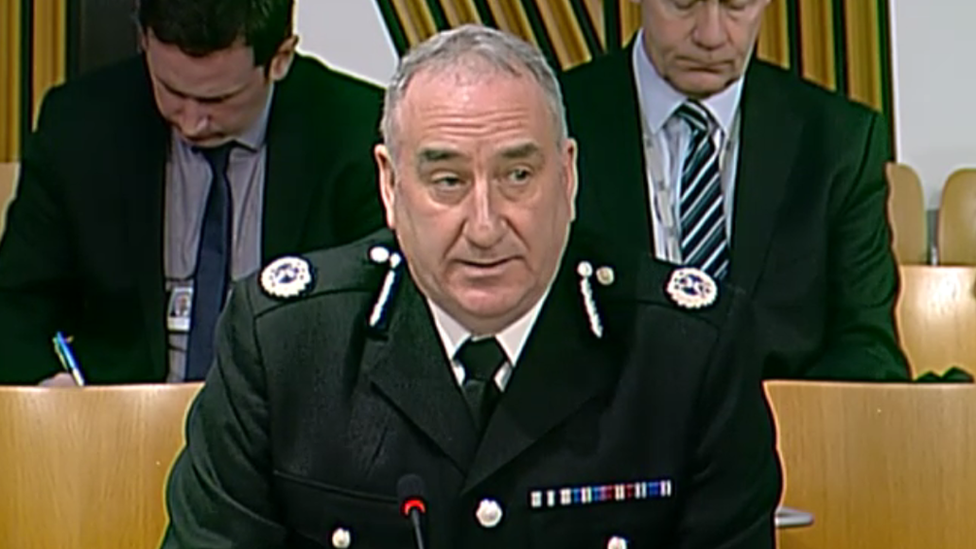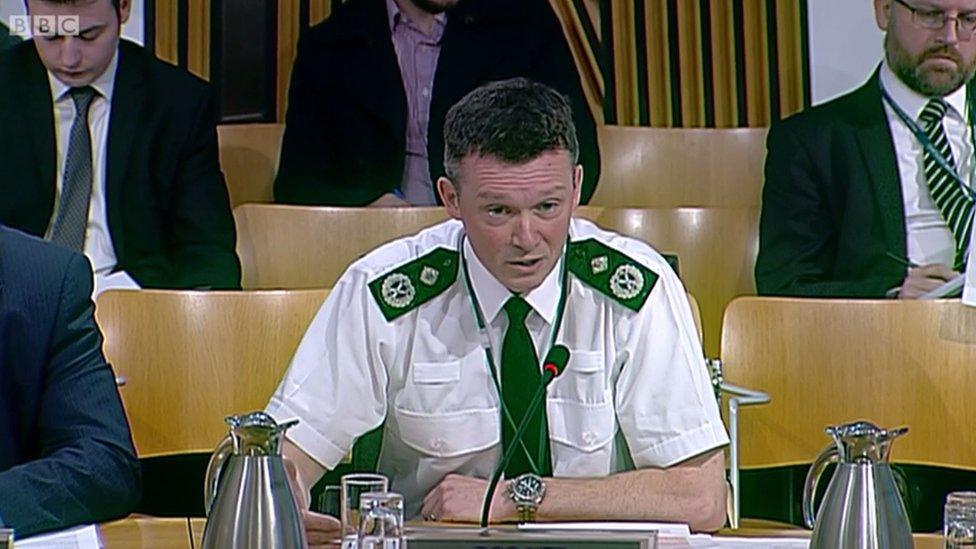MSPs invite officers to give evidence in spying probe
- Published

Police Scotland was found to have breached guidelines in applications to access communications data
A Holyrood committee has bypassed Police Scotland by inviting four officers named in a probe into spying rule breaches to give evidence to MSPs.
The force had declined to put the four officers forward to give evidence, citing "critical legal issues".
The justice committee is investigating after police intercepted communications without getting judicial approval.
Assistant Chief Constable Ruaraidh Nicolson gave evidence to the committee instead of the four officers.
Mr Nicolson said the breach, committed as officers sought to obtain details of a journalist's sources, occurred because an officer "misinterpreted" a recently-introduced regulation.
Four officers named as being part of the inquiry have been invited to give evidence before the committee - Det Supt David Donaldson, Det Insp Joanne Grant, Det Supt Brenda Smith, and Ch Supt Clark Cuzen.
After senior officers declined to pass along an invitation to the officers, committee deputy convener Elaine Murray wrote to the Scottish Police Federation and the Association of Scottish Police Superintendents - bodies which represent the officers - to formally invite them.
In the letters, Ms Murray said the officers were free to decline to answer questions if they had good reason to.
The proposed evidence session would take place on 26 January.

Assistant Chief Constable Ruaraidh Nicolson gave evidence to MSPs about the issue
An investigation by the Interception of Communications Commissioner concluded in November that the force had obtained communications data without judicial approval on five occasions.
Sir Stanley Burnton said the "failures", which affected four people, could "properly be viewed as reckless".
It is understood the case relates to the murder of Emma Caldwell in 2005, after a re-investigation of the case was ordered in May 2015.
Mr Nicolson told MSPs that "someone external" had asked Police Scotland's Counter Corruption Unit to find out how sensitive material had made it into the public domain.
He also confirmed that powers to intercept communications had been used in relation to journalists on seven other occasions but insisted they involved journalists' sources rather than the journalists themselves.
A previous evidence session heard from Deputy Chief Constable Neil Richardson, who said the breaches of a 22-day old code had been due to a "misjudgement" by Mr Donaldson, an "extremely experienced officer"
He said the "pace" at which the new guidance had come into being was "very aggressive", which may have been a factor in the "error" made.
- Published12 January 2016

- Published7 January 2016

- Published15 December 2015

- Published25 November 2015
